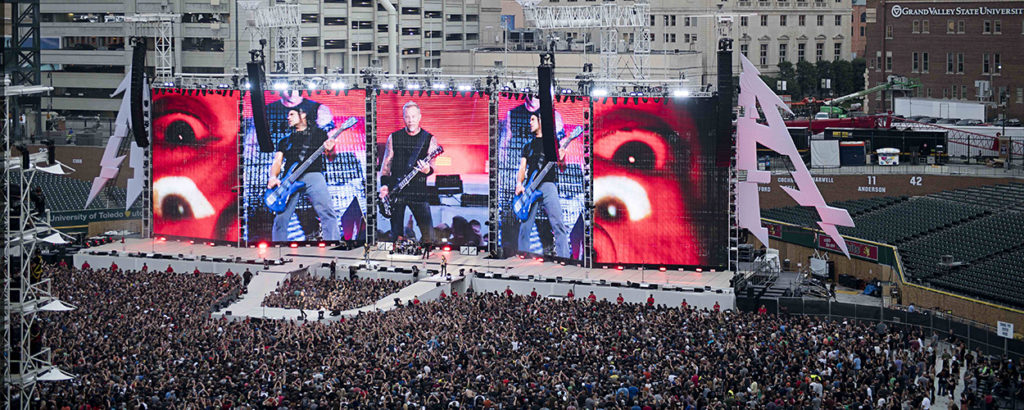This website uses cookies so that we can provide you with the best user experience possible. Cookie information is stored in your browser and performs functions such as recognising you when you return to our website and helping our team to understand which sections of the website you find most interesting and useful.
Artist News Business News Live Business Top Stories
Live Nation admits it helped artists tout their own tickets
By Chris Cooke | Published on Monday 22 July 2019

Live Nation in the US has confirmed that it has, in the past, facilitated the transfer of tickets to shows it is promoting directly to sellers on the secondary market. But only, it insists, at the request of artists. And such requests have shrunk to almost zero with the rise of VIP and platinum ticketing solutions, such as those offered by the live giant’s own Ticketmaster. These statements follow revelations in Billboard about how tickets were sold for a Metallica tour in 2017.
As the debate around online ticket touting has gone through the motions on both sides of the Atlantic, it has frequently been claimed that some artists, managers, promoters and venues are complicit in the resale of tickets at hiked-up prices online.
Those claims are not without substance. As online touting first started to boom in the mid-2000s, some in the live sector saw an opportunity to drive extra revenues. Meanwhile others, frustrated that efforts to regulate or limit online touting initially failed, adopted a ‘if you can’t beat them, join them’ strategy.
As anti-touting campaigns have gained momentum in a number countries, not least the UK, many of those involved in the secondary market have accused some key players in the live industry of hypocrisy.
This is because there are now people who openly criticise online touting but who, in the past, profited from the resale of tickets to their own shows on websites like StubHub and Viagogo. The touting of tickets in that way by artists or their business partners has generally been done anonymously via some sort of agent.
Billboard’s report centres on a recording of a phone call from early 2017 between Live Nation’s Bob Roux and a representative for Metallica. They discuss how the band might put a total of 88,000 tickets for upcoming shows onto the secondary market.
Roux suggests that a Live Nation exec or a member of venue box office staff put several thousand tickets per show into a single account, as they would for a fan club or brand partner pre-sale. Though he adds that such a large number of tickets being allocated to a single account in this way might “raise some eyebrows”.
Responding to Billboard’s report, Live Nation confirmed that it had, in the words of the US trade mag, “facilitated the quiet transfer of concert tickets directly into the hands of resellers through the years, though only at the request of the artists involved – who control where the tickets are initially sold”.
In a statement, the live firm added that between 2016 and 2017 only “about a dozen artists out of the thousands we work with asked us to do this”. And, “requests like these have declined virtually to zero as tools like dynamic pricing, platinum seats and VIP packages have proven to be more effective at recapturing value previously lost to the secondary market”.
Live Nation has always been under more scrutiny than most when it comes to online touting, because its Ticketmaster division operates resale sites, meaning it can profit from both the primary and secondary sale of a ticket. In Europe, of course, Ticketmaster last year bailed on resale, shutting down its Get Me In! and Seatwave sites. But it still has a lucrative secondary ticketing business in the US.
While online touting has generally been less controversial in America than here in the UK and elsewhere in Europe, there have been some mini-scandals around the secondary market Stateside, most involving Live Nation in some way.
And although ticketing tends the be regulated at a state level in the US, there is some support in Congress for new country-wide rules. Some of which were discussed at a recent FTC-organised debate on the wider ticketing market.
Live Nation will be hoping that it can stop Billboard’s Metallica report from becoming another scandal by stressing that ticket strategies like that discussed in the 2017 phone call were pretty rare and always artist-led.
Though the revelations about how Metallica tickets were sold in 2017 will provide ammunition for both those who would like more regulation of the secondary market, and also the ticket resellers who criticise the music industry when it’s in an anti-touting mood.





